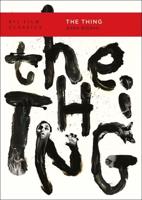Publisher's Synopsis
Robert Altman's Nashville (1975) is simultaneously an intimate film about interpersonal connection and disconnection, and a sprawling, meandering portrait of American societal exhaustion in the wake of Vietnam, Watergate and a spate of political assassinations. Despite its pessimistic, satirical viewpoint, the film suggests a carefully guarded optimism: 'life may be a one-way street,' but one has no choice but to 'keep a goin'.
Heather Hendershot traces Altman's career journey from industrial films and formulaic television programmes to feature-film production, where his work casaside commonly accepted norms of genre, scripting and acting. She places Nashville in the context of the New Hollywood of the 1970s, which offered a post-censorship antihero, the perennial loser. Embracing the new pessimism, Altman's work fits with those of contemporaries such as Martin Scorsese and Peter Bogdanovich, but it also stands apart for its innovative sound design, improvisatory drive, and loose genre commitments.
Through a close reading of the five days over which the film takes place, Hendershot unpacks both its political dynamics and the characters' interrelationships and motivations. She highlights Nashville's criticism of the suffering of its female characters, an engagement that springs from Joan Tewkesbury's screenplay, Altman's sensitivity to gendered exploitation (here, if not in all of his pictures), and the role the performers themselves played by improvising and scripting some of their own material. Hendershot's analysis provides expert guidance to the novice viewer while also offering new insights to those already familiar with this wildly complex film.










